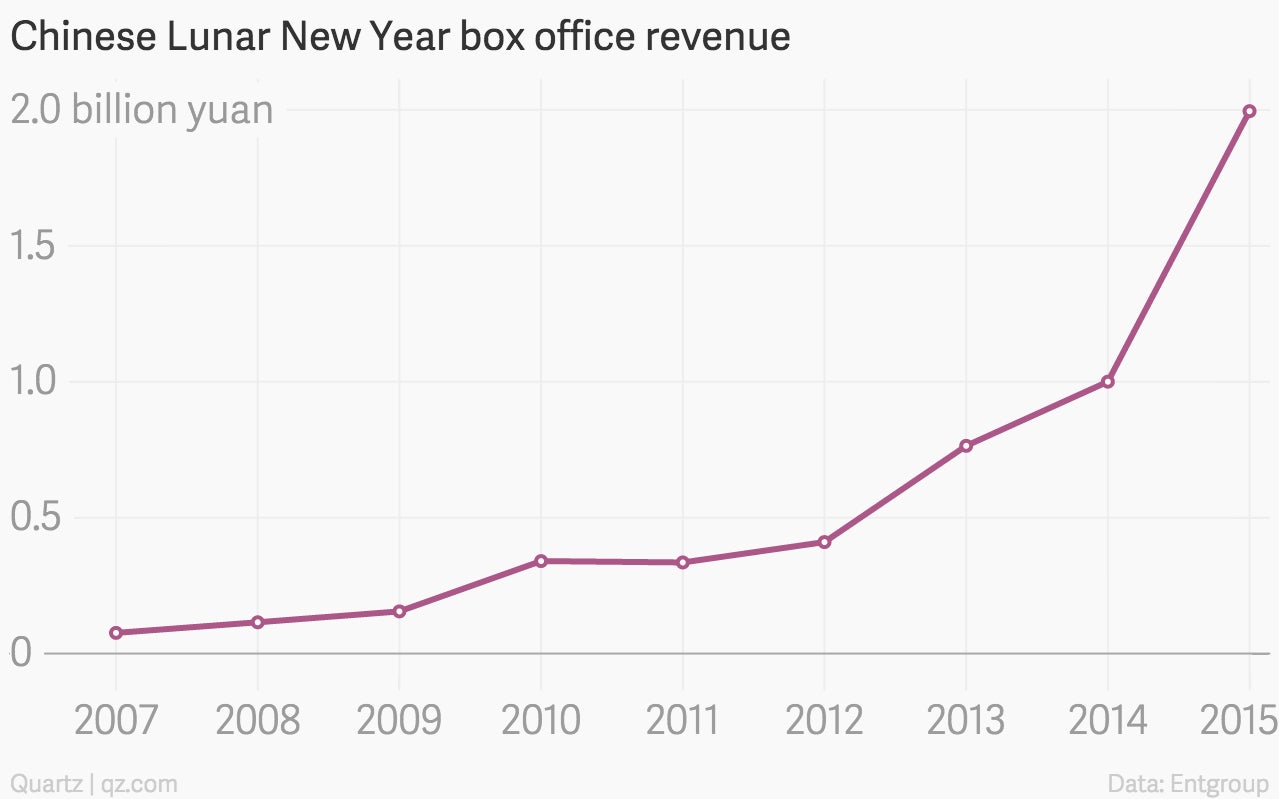China is shutting Hollywood out of its biggest movie-going holiday
For the first time, China has beat the United States at the box office. Chinese cinemas raked in $650 million in revenue in February, compared to $640 million in the United States, according to data from the research group Entgroup.


For the first time, China has beat the United States at the box office. Chinese cinemas raked in $650 million in revenue in February, compared to $640 million in the United States, according to data from the research group Entgroup.
The milestone isn’t quite as impressive when you consider that February is China’s biggest movie-going month because of Lunar New Year, and is one of the most sluggish months for US moviegoers. China’s best-ever weekend total of just over $100 million is still far below that the peak US weekend around Christmas, which usually brings in $200 million or more.
But the uptick confirms that Lunar New Year is fast becoming the country’s most important movie-going holiday. (Other major holidays are National Day in October, and both Chinese and Western Valentine’s Day.) Since 2007, box office revenue for the week of the holiday, usually in February or late January, has jumped more than 18-fold to 1.42 billion yuan in 2014 (about $226 million) and an estimated 1.995 billion yuan this year, according to Entgroup.

Unfortunately for Hollywood, foreign films are usually barred during this period to give a boost to domestic or jointly produced films. This season, the top grossing film was a Chinese crime-comedy sequel, From Vegas to Macau II—it was described by Variety as “bland and hollow.” The Chinese historical action film Dragon Blade, starring Jackie Chan, John Cusack and Adrien Brody, as well as Wolf Totem, a co-production between Chinese and French studios, were also among the top box office earners.
The new closed off movie-going season is just another obstacle facing Hollywood studios scrambling to gain access to the world’s second-largest cinema market, which is growing at an astounding rate. The Chinese movie industry’s revenue totaled $4.76 billion last year, up a staggering 36% from a year earlier. An average of 15 new cinema screens were added every day. Still, regulators keep a tight grip on the number of foreign movies that can be shown in the country and also on the kind of material that films can portray.